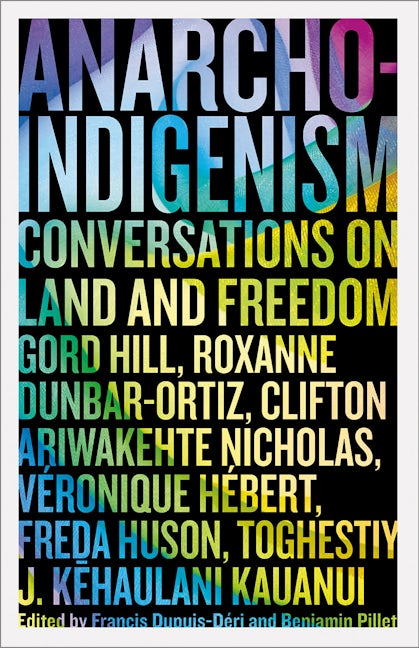Conversations on Land and Freedom

Look Inside
Edited by Francis Dupuis-Déri and Benjamin Pillet
Interviewee Gord Hill, Roxanne Dunbar-Ortiz, Clifton Ariwakehte Nicholas, Véronique Hébert, Freda Huson, Toghestiy and J. Kēhaulani Kauanui
Paperback
£14.99
(with free eBook)
eBook
£7.99
BUY
Explores the possibilities that indigenous thought and traditions have for emancipatory, decolonial, feminist societies beyond the stateOverview
Author Biography
Endorsements
Contents
Details
As early as the end of the 19th century, anarchists such as Peter Kropotkin and Élisée Reclus became interested in indigenous peoples, many of whom they saw as societies without a state or private property, living a form of communism. Contemporary thinkers such as David Graeber and John Holloway have continued this tradition of engagement with the practices of indigenous societies and their politics, while indigenous activists and intellectuals coined the term 'anarcho-indigenism', in reference to a long history of (often imperfect) collaboration between anarchists and indigenous activists, over land rights and environmental issues, including recent high profile anti-pipeline campaigns.
Anarcho-Indigenism is a dialogue between anarchism and indigenous politics. In their interviews, contributors Roxanne Dunbar-Ortiz, Véronique Hébert, Gord Hill, Freda Huson, J. Kēhaulani Kauanui, Clifton Ariwakehte Nicholas and Toghestiy reveal what indigenous thought and traditions and anarchism have in common, without denying the scars left by colonialism even within this anti-authoritarian movement. They ultimately offer a vision of the world that combines anti-colonialism, feminism, ecology, anti-capitalism and anti-statism.
No comments:
Post a Comment